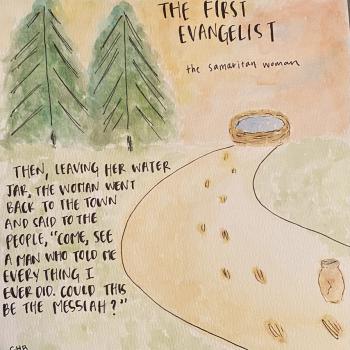There were some interesting responses to a post I shared recently with a church sign advertising a book burning session (for members only). One commenter asked about the burning of books in the kingdom of God. I found the question profoundly ironic, since the only people I can imagine finding the question meaningful, or answerable, are people who are sure that no one who will enter the kingdom of God would ever under any circumstances read those sort of books anyway. And as it turned out, the commenter in question gave natural expression to the worldview that goes hand in hand with bookburning. If you will deprive books and people of the right to be in the kingdom of God in the future, you will happily also deprive them of the privilege of being served by your business in the present.
Book burning, and the much more common ignoring of books, is an expression of fear – fear that the people you disagree with have lives that are so fulfilled, and arguments that are so compelling, that the only solution is to burn their books when possible to prevent anyone from reading them, but at the very least to be sure not to read them yourself. The corresponding view of the kingdom of God then becomes one in which people live eternal lives of upright morality, apparently filled deep down with resentment for all the fun things that they had to and have to give up in order to be there.
The irony is that those who are actually committed to justice, to caring, to compassion, to the values that we understand to be associated with the kingdom of God, do not experience it that way. I doubt that any of us would prefer to have an extra bite of food than to see the smile on a hungry person’s face when we give something to them instead of eating it ourselves.
If burning books, or ignoring them, is what you think piety is, don’t be so sure that you’ve understood this whole kingdom of God business. You actually think that the kingdom of God is about divine authority being imposed against the will of people who would otherwise much rather do something else, when in fact it is about the transformation of people and their values, so that where you once valued burning books and people you disagreed with, now you want to serve them and to see them experience the same redemption that has transformed your own life and made it seem more rewarding than the one you previously lived in fear and resentment.
NOTE: The quote from Ray Bradbury in the image abive comes from a 1993 interview.













